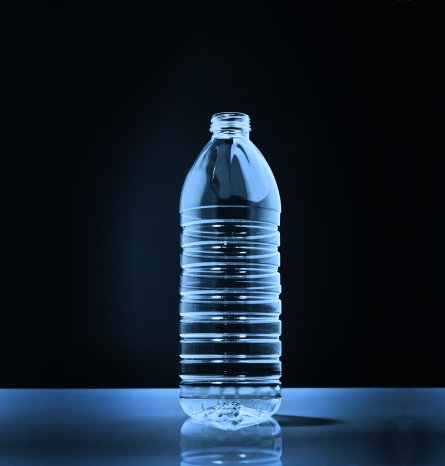The bottle’s working title of Factor 100 is based on the fact that at just five grams the bottle weighs only one hundredth of its volume of 500 milliliters. “Compared to what was previously the lightest bottle on the international market to date, the new bottle allows a huge reduction in materials of about a third,” explains Christian Rommel, project engineer for Bottles & Shapes™ at KHS Corpoplast.
The bottle design has been specifically adapted to give it as good a grip as possible and maximum dimensional stability. Its sophisticated geometry, derived from virtual prototypes, even has a higher top load in practice than originally predicted. State-of-the-art technical systems both in the injection molding of the preform and in the blow molder also permit the PET to be extremely precisely distributed across the bottle shape with optimum stretching. This means that more or less material is used in those areas where this is both feasible and prudent. With its smaller carbon footprint – the result of the aforementioned saving in materials – the lightweight also meets growing consumer demands for an ecologically sustainable form of packaging.
Lightweight innovations a tradition at KHS
Reducing the weight of PET bottles is especially significant as about 70% of the manufacturing costs are attributable to the materials used. This savings potential and high level of sustainability have also played a major role in earlier KHS lightweighting developments. KHS thus not only holds the record for still water but also for PET bottles with a screw cap for highly carbonated beverages: the corresponding 0.5-liter bottle here weighs 9.9 grams, the 1.5-liter bottle 23.3 grams. In 2016, at the behest of a major German brewery, the filling and packaging specialist also developed the lightest 0.5-liter PET beer bottle in the company's history to date. In addition, KHS’ lightweight 1.0-liter PET milk bottle recently won the World Beverage Innovation Award from British publisher FoodBev Media.



